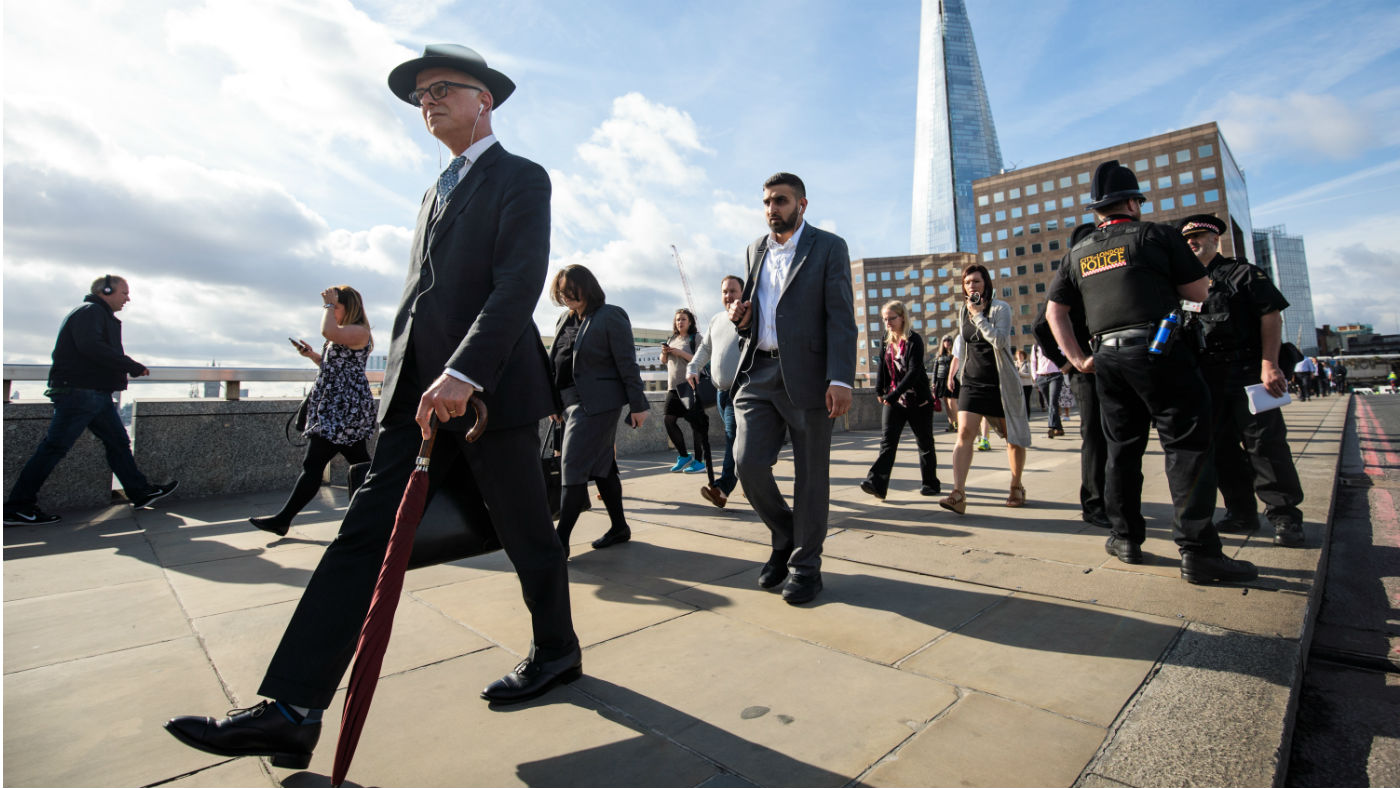Top FTSE executives facing curbs to pension payouts
Shareholders and MPs express anger at huge pension perks and accounting trickery to mask size of payouts

A free daily email with the biggest news stories of the day – and the best features from TheWeek.com
You are now subscribed
Your newsletter sign-up was successful
Shareholders and MPs have turned their anger on the UK’s top executives over their huge pension perks and use of accounting trickery to mask the size of their payouts.
The Sunday Times reports that “unlike most employees, chief executives tend to receive a cash lump sum each year towards their retirement”.
Last week it was revealed that the chief executive of state-owned Royal Bank of Scotland, Ross McEwan, receives a cash payment worth 35% of his £1m salary a year.
The Week
Escape your echo chamber. Get the facts behind the news, plus analysis from multiple perspectives.

Sign up for The Week's Free Newsletters
From our morning news briefing to a weekly Good News Newsletter, get the best of The Week delivered directly to your inbox.
From our morning news briefing to a weekly Good News Newsletter, get the best of The Week delivered directly to your inbox.
The public outcry over the size of McEwan's payout followed similar uproar at HSBC, Standard Chartered and Lloyds Banking Group, where staff have expressed deep anger at chief executive Antonio Horta-Osorio’s pension arrangement.
“Investors have raised concerns about these handouts that are grossly out of line with the workforce’s pension pots,” says the Sunday Times.
Research from the Daily Mail has revealed as many as 54 companies in the FTSE 100 have been handing chief executives cash payments worth at least a quarter of their salary every year towards their retirement.
“This flouts tough new guidelines from the powerful Investment Association that state pension payments should be worth no more than 24 per cent of salaries” says This is Money, “and for new chief executives the figure should be in line with what staff receive – typically below 15%.”
A free daily email with the biggest news stories of the day – and the best features from TheWeek.com
Luke Hildyard, of the High Pay centre, says “with vast pay awards, top bosses would rake in much higher pension payments than ordinary workers, even if they were paid on the same terms. But most chief executives receive a much bigger proportion of their salary. Such blatant double standards leave a sour taste in the mouth of ordinary workers”.
“The focus on pensions marks the latest stage in a backlash over executive pay that has been simmering since the financial crisis” reports Ben Martin in The Times.
“Pension inequality — the outsized benefits top executives receive compared with average employees — has emerged as one of the leading issues heading into the UK’s AGM season,” say the Financial Times.
In an attempt to “head off an attack on chief executives’ gilded retirements” by the Investment Association, which represents most of the City’s biggest institutions, the Sunday Telegraph reports that “Britain's biggest companies are scrambling to curb generous pension payouts for top bosses as powerful City investors demand action on unfair pay”.
The paper reports that British Gas owner Centrica, property giant British Land, energy network National Grid, plumbing distributor Ferguson and rental company Ashtead are “understood to be reviewing their executive pension policies with a view to cutting payouts as a proportion of salary”.
However, while UK investors are “claiming early successes in their battle against excessive executive pensions” says the FT, they “concede some companies are resisting calls to bring benefits in line with most staff”.